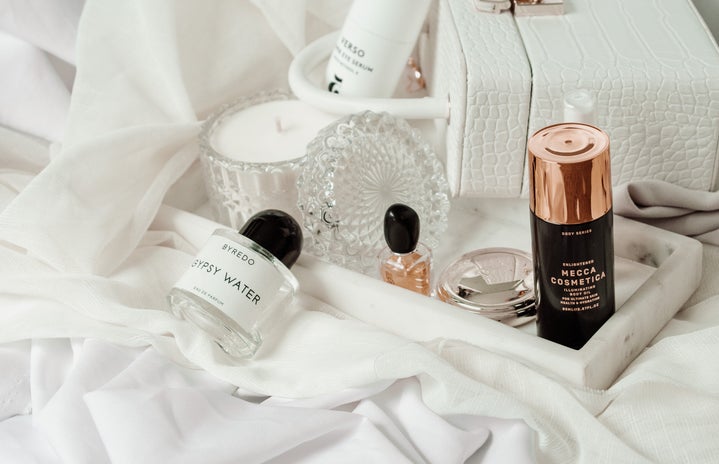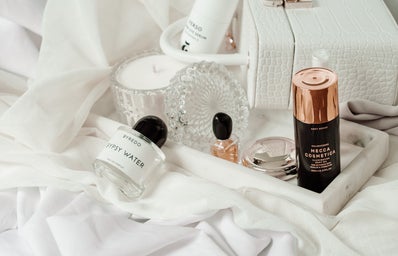In today’s multimedia society, makeup is no longer viewed as simply a part of our daily routine. People seem to live, breathe and die makeup. Our Instagram Explore feeds are an explosion of creativity as the beauty industry evolves, from a mere necessity into a far more expressive form of art.
We see this not only in the prominence of the industry itself, but through the vast cult of beauty enthusiasts on YouTube, Snapchat and Instagram. Beauty blogging sensation NikkiTutorials regularly preaches to her 11 million YouTube subscribers about ‘The Power of Makeup’, a video which ultimately developed into a campaign whereby the far too frequent shaming of women, who may or may not wear makeup, was criticised.
However, despite the powerful presence of the industry, what seems to be belittled is in fact the power of makeup branding. Arguably, we allow for the most famous and well-respected beauty companies to misrepresent the role of the modern-day woman through the language choices they use to represent us.
Too Faced Cosmetics have a reported value of over $500 million, their products are widely distributed and are accessible to many women worldwide. What is it that makes them so successful? This is largely attributed to their attention to detail in terms of packaging and marketing within their most famous ‘Peach Collections’. Products range from ‘Peach Perfect’ and ‘Peach Please’ eyeshadows to ‘Peach Blur Finishing Powders’.
Difficulties with this branding become apparent when encountered with a critical eye. Whether women should be sold products on the premise that they need to ‘blur’ or ‘conceal’ their supposed flaws in order to achieve the ‘perfect’ look seems to defeat the empowering agenda of self-love and respect which we expect (and hope) the beauty industry to increasingly advocate for.
If we choose to deconstruct Too Faced’s marketing further, we can begin to question why they have chosen to so strongly focus on this specific, somewhat arbitrary piece of fruit.
Yet as we consider the social context that we find ourselves in, we can no longer deem the ‘Peach’ to be an arbitrary or random choice but rather potentially far more deliberate and sinister.
Our digitalised society has allowed for the proliferation of the Peach Emoji as an international sensation, an iconic image regularly associated with an idealised version of a bum, most explicitly outlined within Too Faced’s branding through the ‘Pinch My Peach’ eyeshadow colour.
Beauty companies have never shied away from using explicit sexual references when naming their products, as can be seen with Nars’ ‘Orgasm’ Blush, Too Faced’s ‘Better Than Sex’ Mascara and Essie’s ‘After Sex’ nail vanish.
This focus placed on both sex and women’s bodies may appear peculiar or even illogical considering most makeup products are for a women’s face. Yet, what we can gauge from this is that the practicality or purpose of a product is far less valued than the emphasis and expectations placed on women sexually.
Some may accuse makeup brands of subscribing to what Laura Mulvey coined ‘The Male Gaze’ in 1975, presenting and highlighting women as sexualised objects through a masculine lens. Alternatively, others may ultimately view the use of this discourse as empowering, an opportunity for women to take control of their bodies and sexual encounters. Some may decide to question the relevancy of it at all. Do words really have that much power in terms of governing our thoughts and attitudes?
If we are to recognise the impact that the language surrounding the industry has on women, we must understand the impact that language has not only in representing the world we live in, but the active role it plays in constructing our wider ideas and attitudes.
So, next time you’re stood at the makeup counter or are flicking through Instagram, pause and take a moment to reflect about what truly represents women and consider that an individual’s self-worth comes from within rather than through the external imposition of perfection.



